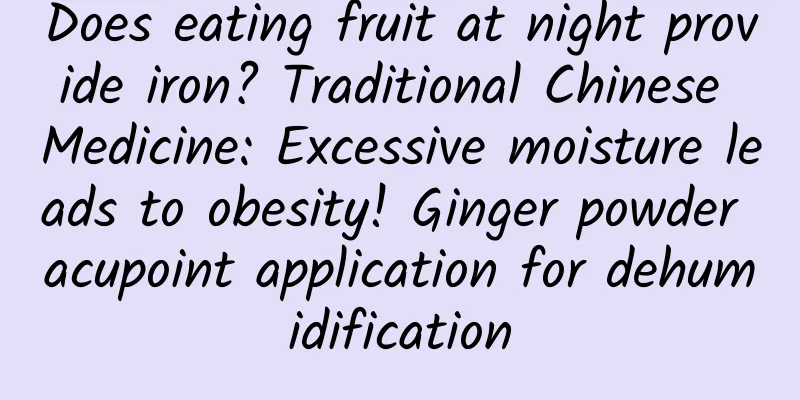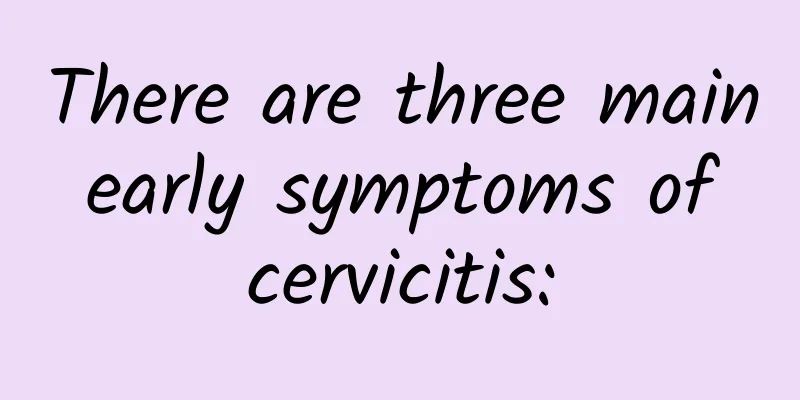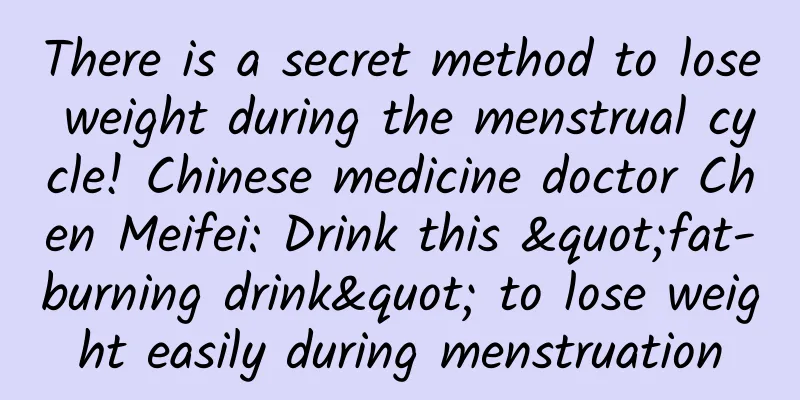Does eating fruit at night provide iron? Traditional Chinese Medicine: Excessive moisture leads to obesity! Ginger powder acupoint application for dehumidification

|
"In order to maintain health, don't eat fruit at night, and you will have no red marks on the health check." This topic has recently become popular on the Internet with the personal testimony of a famous Chinese medicine doctor. Eating fruits in a traditional Chinese medicine clinic is definitely a very knowledgeable health education. As the saying goes, "Fruit in the morning is gold, from noon to 3 pm is silver, from 3 pm to 6 pm is copper, after 6 pm is lead, and before going to bed is iron." What is the truth? Why do some people get fatter the more they eat fruit? Is the moisture in your body getting heavier? Let’s listen to the detailed explanation from the Chinese medicine practitioner. Eating fruit at night will cause moisture to accumulate in the body, leading to a phlegm-damp constitution that is prone to obesity. Traditional Chinese medicine practitioner Lai Ruixin said that when it comes to eating fruit correctly, time is absolutely the key, and it is also based on constitutional studies based on one’s physical constitution. The key lies in the moisture and rich sugar content of the fruit. The later you eat fruit, the more likely it is that moisture will accumulate in the body and turn into phlegm. Therefore, eating fruit at night can easily cause phlegm-dampness in the body. However, the fruits in Taiwan are very sweet, and eating them at night will lead to calorie accumulation and cause a phlegm-damp constitution that is prone to obesity. Phlegm-dampness refers to the disorder of the circulation of qi, blood, body fluids and body fluids in the body, or the invasion of external moisture into the body and the abnormal accumulation and retention of moisture in the body. The spleen is the foundation of acquired constitution and is responsible for transporting and transforming the essence of water and grain in the human body, absorbing nutrients from food and transporting them to all parts of the body. It is the source of Qi and blood in the human body. Insufficient spleen function cannot metabolize water and dampness in the body normally, and sweet fruits are an important reason for aggravating phlegm and dampness constitution. The symptoms of phlegm-damp constitution are obesity, abdominal distension, chest tightness, edema, drowsiness, heaviness, preference for fatty and sweet food, enlarged tongue, and greasy white tongue coating. Traditional Chinese medicine practitioner Lai Ruixin recommends that friends of this type should try to avoid eating fruit at night, as eating fruit at night can easily make you gain weight. Fruits contain sugar and are suitable for eating in the morning to help the brain function. In addition to the moist nature of fruit, you should also be careful about the high sugar content in fruit. It is best to eat it in the morning because sugar can help the brain function and aid the day's work. However, at night, when there is less activity and it is time to rest, it is best not to eat too much fruit to prevent too much sugar from turning into fat. It is recommended to eat vegetables containing fiber, vitamins, etc. Ginger is an effective tool for removing phlegm and dampness. People with phlegm and dampness constitution can eat ginger appropriately. When making juice, in order to avoid the fruit being too cold, it is also recommended to add ginger slices, which has a better effect on gastrointestinal digestion and motility. Eating too much fruit will cause excess moisture. Apply ginger powder mixed with Vaseline to the acupuncture points on the soles of your feet to help remove moisture. What should I do if I consume too much fruit and cause too much moisture in my body? Traditional Chinese medicine practitioner Lai Ruixin said that there is actually a trick to dehumidify through acupoint application. Acupoint plastering is one of the external treatment methods in Traditional Chinese Medicine. Mix ginger powder with Vaseline and apply it to the Yongquan acupoints on the soles of feet before going to bed to remove dampness during sleep. Ginger is an effective tool for removing phlegm and dampness. People with phlegm and dampness constitution can eat ginger appropriately. When making juice, in order to avoid the fruit being too cold, it is also recommended to add ginger slices, which has a better effect on gastrointestinal digestion and motility. People who are prone to bloating or indigestion are suitable to eat fruit between meals. Many people also ask: "Should fruit be eaten before meals? Or after meals?" If you are a diabetic, it is best to eat fruit after meals to alleviate the rapid rise in blood sugar caused by fruit. This is because the sugar in fruit is mostly monosaccharides, which are absorbed quickly. If diabetics eat fruit before meals, the fructose will be quickly absorbed, causing a rapid increase in blood sugar. Therefore, a large amount of insulin will be secreted immediately, which is not good for metabolism. If you are prone to bloating or indigestion, it is recommended that you eat fruit between meals. Many people like to eat fruit as a dessert after a meal. If you are already full or 80% full after a meal, eating fruit will put too much burden on your stomach. Fruits contain organic acids, which cannot be absorbed quickly and will ferment in the stomach, easily causing symptoms such as bloating and indigestion. Therefore, it is recommended to eat them between meals. Tomatoes, persimmons, bananas, and oranges should not be eaten on an empty stomach to avoid irritating the gastric mucosa and causing acid reflux. So, "Can I eat fruit when I'm hungry?" Fruits including tomatoes, persimmons, bananas, oranges, sugar cane and lychees can easily irritate the gastric mucosa and cause acid reflux. Except for these fruits, most other fruits can be eaten before meals. On the one hand, it will help absorption, and on the other hand, it can also control the calories consumed during meals. Moreover, fruits themselves are relatively easy to oxidize and spoil. Eating fruits before meals can allow them to be digested quickly, shorten the time they stay in the stomach, and effectively avoid possible adverse effects on the stomach. However, eating fruit while eating, which is alternating between hot and cold, can easily cause strong irritation to people with weak stomachs, affecting digestion and absorption and making the stomach uncomfortable. It is recommended to choose fruits that are locally produced and in season. For example: In autumn, when the weather is dry, nature gives us pears to help nourish yin and moisten dryness; and in summer, when the weather is hot, nature gives us watermelons to cool us down and relieve heat. The most important thing is whether your body is suitable for eating fruits. If your spleen and stomach are weak, you should eat less fruit. It is usually recommended to have 2 more servings of vegetables than fruits. Vegetables must be cooked, which will be very helpful for the gastrointestinal function. Fruits are moist in nature, so be careful about the sugar content in fruits. They are suitable for eating in the morning because sugar can help the brain function and aid the day's work. However, at night, when there is less activity and it is time to rest, it is best not to eat too much fruit to prevent too much sugar from turning into fat. |
Recommend
A brief discussion on the causes of irregular menstruation in women during menopause
Many women in menopause experience irregular mens...
I have had two caesarean sections. Is it safe to get pregnant with medication now?
With the openness of young people in today's ...
The most common precautions after abortion
Abortion refers to artificial abortion. Most wome...
Can CIN3 precancerous lesions be completely cured?
Which method is more effective in treating cervic...
How much does a bacterial vaginosis test cost?
Bacterial vaginitis is a gynecological disease th...
Where does the menstrual blood go in uterine adhesions?
Where does the menstrual blood go in case of intr...
How harmful is ectopic pregnancy to women?
How harmful is ectopic pregnancy to women? Whethe...
What's wrong with abnormal vaginal discharge?
What's wrong with abnormal vaginal discharge?...
Eat the right fruits to lose weight! Golden time is in the morning
Fruits are foods with the highest water content. ...
What are the examination items for adnexitis?
Many female friends do not know much about adnexi...
Which is less harmful, medical abortion or surgical abortion? What is the best method?
For women who do not have a birth plan, if they a...
It takes 1 month to recover after a miscarriage.
Nowadays, artificial abortion is mostly performed...
Can I eat mutton after uterine fibroid surgery? What is the best thing to eat after uterine fibroid surgery?
Uterine fibroids are common benign tumors in wome...
Treat constipation, improve memory, and take probiotics to benefit your brain and intestines! 6 Tips for Choosing Probiotics
Some people often suffer from diarrhea, while oth...
What are the causes of acute pelvic inflammatory disease?
What are the causes of acute pelvic inflammatory ...









